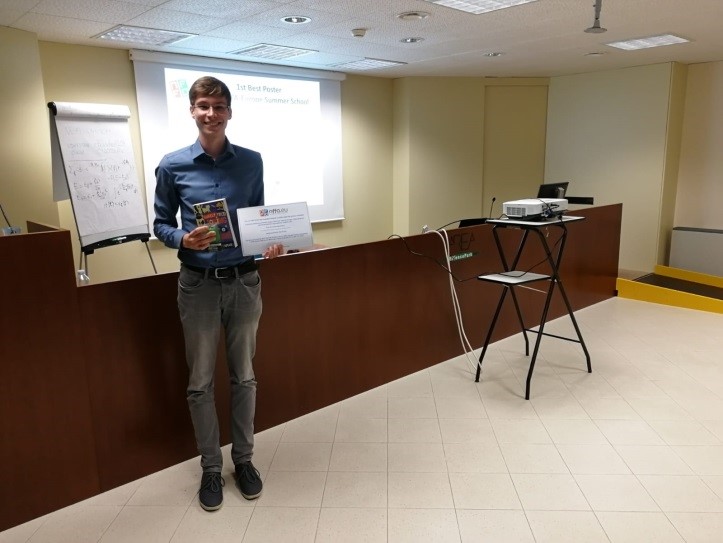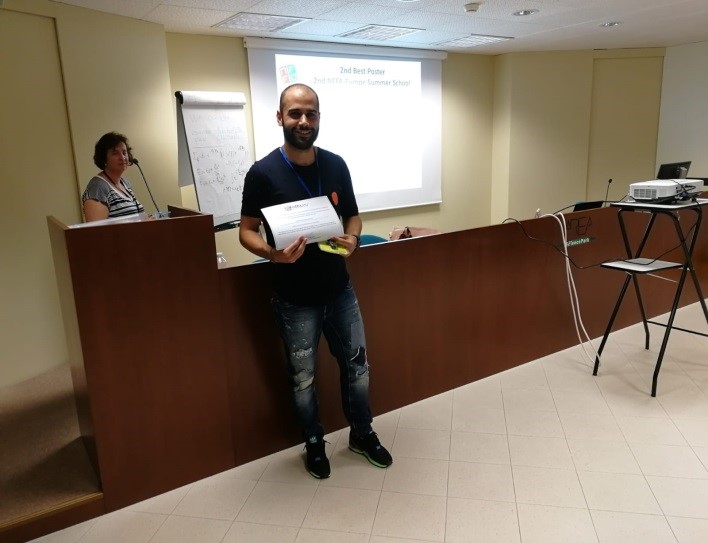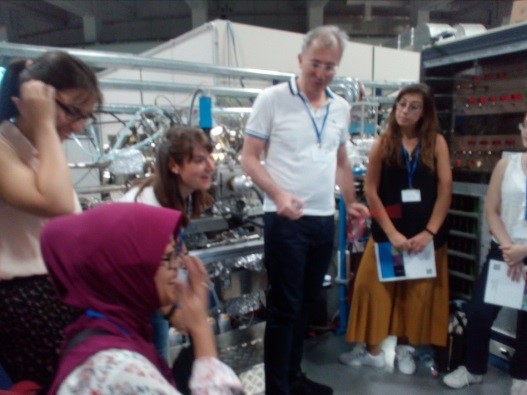NFFA-Europe held the second Summer school in Trieste last July

The 2nd NFFA-Europe Summer School took place in Trieste on 9-13 July 2018. This 2nd School with daily keynote lectures tried to promoting the use of instruments and the knowledge of some of the techniques available within the NFFA-Europe consortium.
Each topic was developed in a one-day format by an introductory lecture and several lectures on specific applications/methodologies. All the lecturers were given by qualified researchers with a high-level of expertise in the research topic of the lecture.
In this 2nd school the research topics were:
- Complex Growth techniques for “quantum materials”
- Scientific Data Management for compliance with FAIR criteria and EOSC goals
- Neutron methods for surface and nanostructured systems
- Microscopy and Spectroscopy at the nanoscale: Scanning Probes and Synchrotron radiation
- Time-resolved optical and electron Spectroscopies : Pulsed source and Free electron lasers
The number of students attending the school was 31, with participation from most of the European countries; Austria (1), Lithuania (2), Denmark (3), Norwegian (1), France (1), Russia (11), Germany (3), Spain (1), Greece (2), Sweeden (1), Italy (3), Switzerland (1), Latvia (1).

Two poster sessions were held to promote discussion between students and researchers. All the researchers attending the poster session recognize the good scientific quality of the posters as well as the student implication.
The two best poster awards were given to Tim Kratky and Efthimius Serpetzoglo.


To complement the lectures several research visits were programmed tryng to give to the students a first-hand experience of the relevant infrastructures at Basovizza Area Science Park in Triestre: Elettra Sincrotrone – Synchrotron: SISSI, SuperESCA, ESCA Microscopy and Nanospectroscopy beamlines; FERMI-Free electron laser Radiation: FERMI experimental Hall and T-Rex laboratory; Labs at CNR-IOM (Istituto Officina dei Materiali): TEM and MBE laboratories at CNR-IOM, PLD and MBE cluster growth facilities at APE beamline.

Overall the second school achieved a very satisfactory assessment from the students according to the final survey done.

